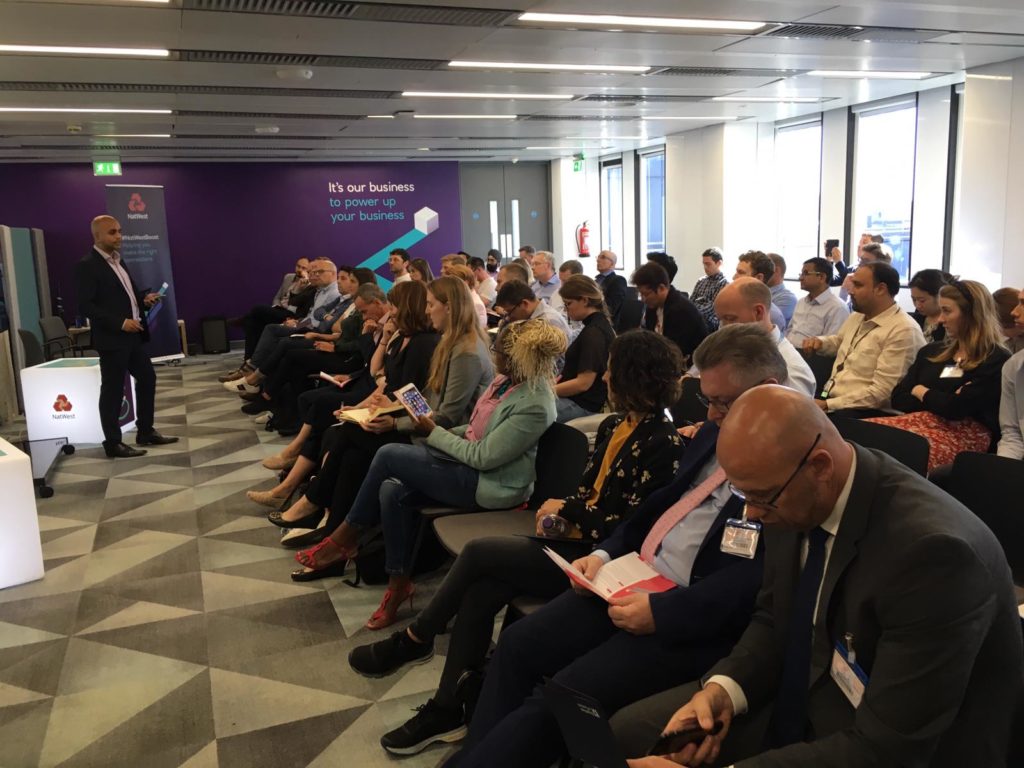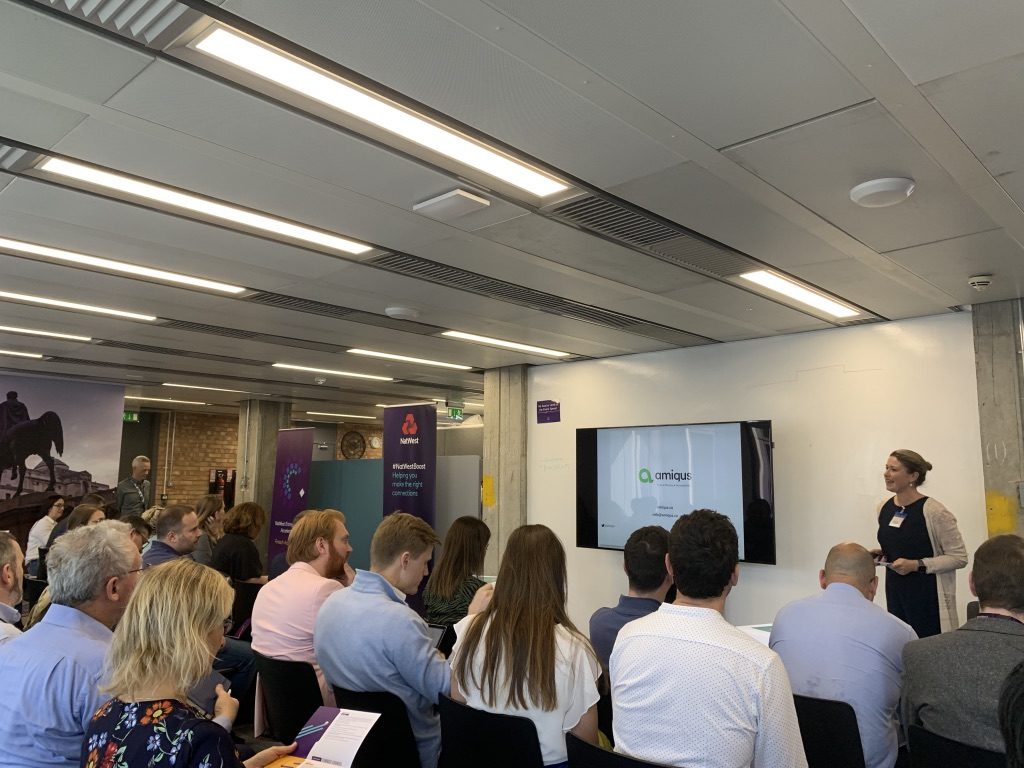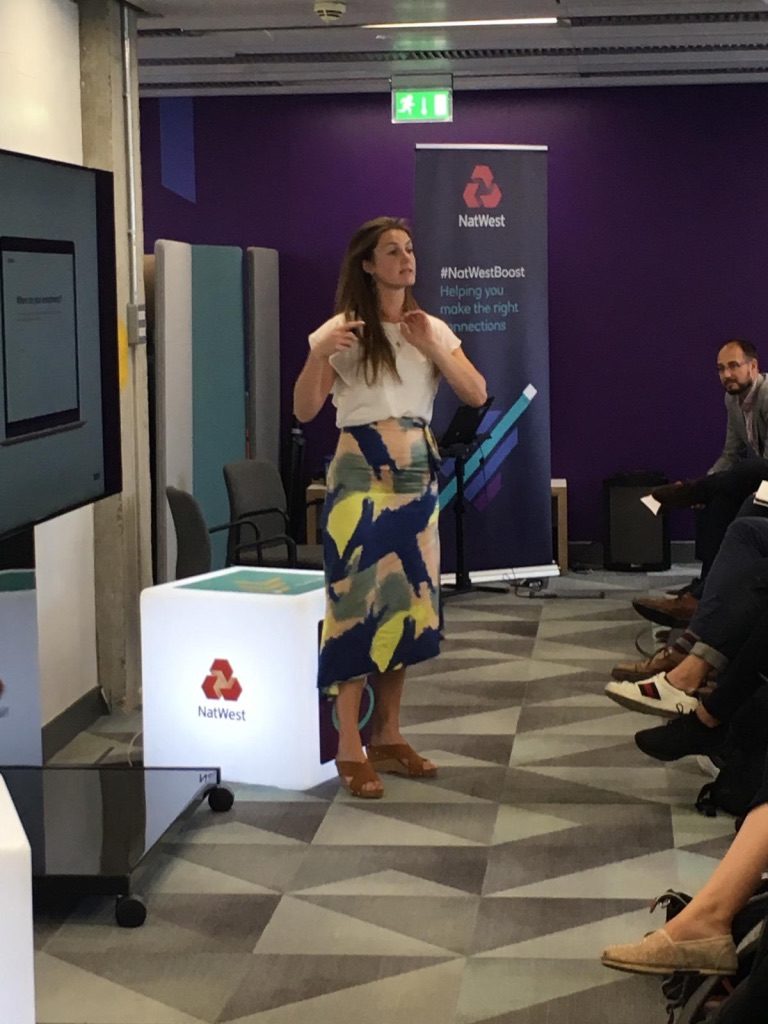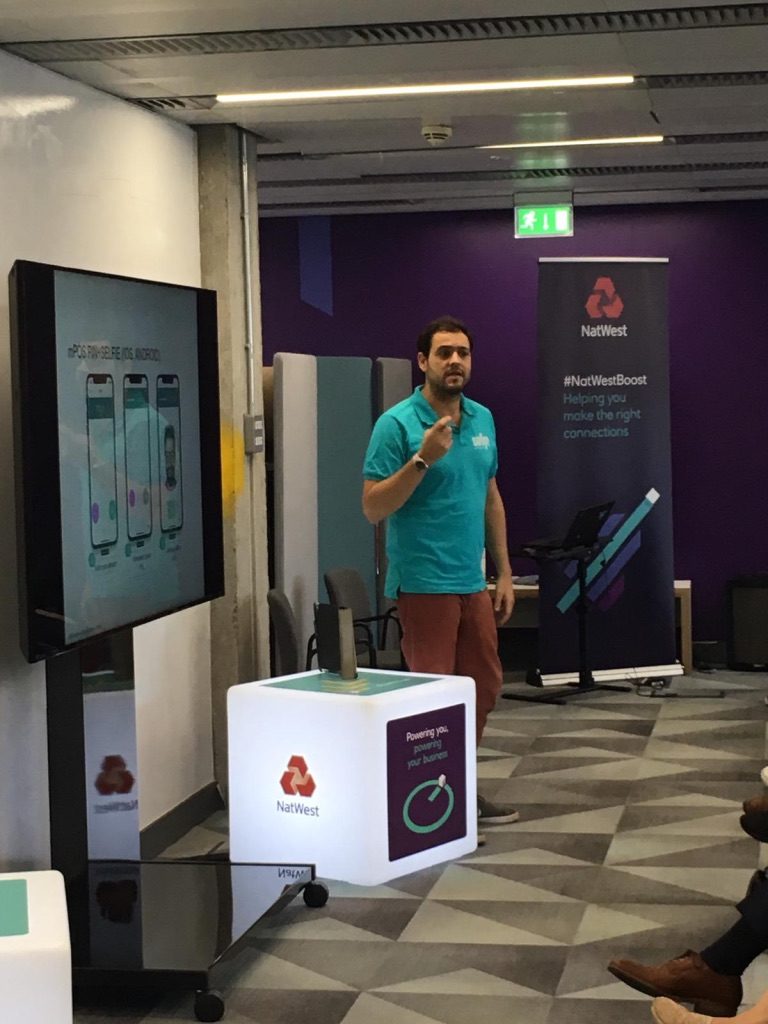
In February 2018 Whitecap Consulting and NatWest announced the a national series of events called the UK FinTech Forum. The events were part of the relaunch of the NatWest Entrepreneurial Hubs (previously called Entrepreneurial Spark), which included the creation of four dedicated FinTech accelerators based in London, Bristol, Manchester and Edinburgh. On 17th September 2019, NatWest hosted a showcase event for the latest cohort of FinTechs to go through the programme which featured 13 FinTechs from across the UK.
If we look back to February 2018, the FinTech sector was just coming off the back of a really strong year in 2017 where cryptocurrencies had grabbed many of the headlines. Open Banking and PSD2 were just being formally introduced into the UK and were dominating the industry headlines and taking centre stage at various events including the FinTech North seminar we hosted at that time. Today the sector continues to thrive in the UK with a report from Innovate Finance and DIT earlier this year putting annual revenues at £6.6 billion (click here for 20 key facts about UK FinTech).
A question often asked of the bank-run accelerator programmes is whether the bank itself gets any value beyond the FinTech brand alignment benefit. I spoke to Steve Chown, Entrepreneurial Innovation Manager at NatWest, who has been involved since the outset. He told me that since its launch the NatWest Accelerator has supported 135 FinTechs, leading to four proof of concept trials within the bank, and two contracts being signed between FinTech firms and the bank. Impressive progress within just 18 months.
Through the event I made some notes on each of the FinTechs, which I’ve included below along with their location and a link to their website. It was good to see some regional representation, with five of the thirteen firms being based outside of London. This mirrors the recent strong showing of regionally-based FinTechs in other cohorts such as the Tech Nation FinTech Talking to the entrepreneurs, there’s a clear acknowledgement that whilst there are many benefits to having a regional base, when it comes to raising investment they are in no doubt that there is more opportunity to meet potential investors in London. Regional FinTech is close to our hearts at Whitecap, and a topic on which we wrote some detailed blogs last year and are currently researching in 5 different regions (Leeds, North East, Bristol, West Midlands, and Greater Manchester).
Anyway, onto the FinTechs…
Amiqus – Edinburgh
Seamless and secure customer experience combined with anti money laundering compliance. 162 clients including professional services firms, financial services, platforms, IFAs and recruitment firms. Laura from Amiqus noted how helpful being involved with FinTech Scotland had been, for awareness and connecting to the ecosystem and potential clients.
Finstant – Manchester
Cashflow forecasting software that allows business owners to create a cashflow forecast in 10 minutes. Has an integration with Facebook and is currently linking with Google Assistant, which will enable it to integrate with things like Google Home. Wants to become the industry standard for cashflow forecasting, rather than Excel. Sam from Finstant aid that being based in Manchester had made it easier to build profile and awareness, and the region had been very supportive.
Smart Bill – London
This firm is using Open Banking to provide a service which helps consumers manage their bills and insurance products that are linked to fixed term contracts, enabling them to identify the best prices available and to manage their bill payments. It provides businesses with white label tools that enhance their customers’ lives while giving the business meaningful data.
Uhura – London
An AI platform that reads and understands contracts just as humans do, extending to the capability to help redraft new documents. Uhura has been voted one of Europe’s most promising FinTechs and operates with 95% accuracy and can be deployed in the cloud or on premise.
Tumelo – Bristol
Tumelo is tackling the lack of transparency in the investment industry, particularly in the pensions industry. It enables consumers to identify all the underlying companies in the funds another investments, enabling any investor to have impact with their money through campaigns, voting and shareholder perks. It provides a dashboard for investment advisers, and connectivity via APIs for digital providers. Tumelo is a business well known to Whitecap via our Bristol team.
Credibble – London
Helps consumers improve their credit record by creating a to do list of actions they need to take in order to be viewed more positively by lenders when applying for mortgages. Makes one from lenders when consumer apply to them for mortgages via the Credibble site. Currently operates a B2C model but is aiming to build links with mortgage brokers. Partners with Equifax and has already raided £1m.
Mettle – London
Mettle is NatWest’s digital business bank. It is just under two years old and is aiming to be the best digital account for micro SME businesses in the UK. Businesses can usually set up an account tin minutes (the current record is under 4 minutes).
Payaca – Bristol
A platform that enables consumers to connect to multiple lenders to find the best loans, with a focus on the tradesman sector. The customer gets a loan and then pays the tradesman directly using the funds. The revenue comes from lenders (who pay commission) and businesses (who pay a subscription). Aiming to expand into other sectors in future, and to expand internationally. The model is streamlined financially so is attractive for the SMEs who do not need to pay significant fees. Payaca is currently fundraising £500k and keen to hear from potential investors.
Pynk – London
An investment platform which supports individual investors, combines our crowd, experts and A.I. to make smarter investment decisions. Users pay a % of assets under management. Also have B2B2C channels whereby the proposition can be offered via third parties such as challenger brands, and can monetise their data.
Hub 85 – London
Collects data from spreadsheets into a central hub, helping them reduce costs and complexity by managing the data more effectively using automated process. The business model is SaaS based, using a subscription approach.
Abaka – Edinburgh
A digital solution for individuals who are at retirement age. It is a cognitive customer engagement and financial advice platform which uses conversational AI via chatbots. It is a customisable front end solution which can be plugged into the back end systems of established product providers who offer products to these consumers.
SwIDch – London
Removes the need for credit card numbers by generating a dynamic card number for each transaction. The customer gets a card with no number on it, as the numbers are generated either via a smartphone or on a trusted merchant website. The customer can set the card to expire at a certain date, enabling them to cancel ‘free’ subscriptions just as they are about to flip into a paid model at the of a defined period.
Saffe – London
A facial recognition provider for payments and online banking authentications, enabling customers to use selfies (taken at the point of sale) to access their accounts without using their passwords and without having their phone, wallet or another device with them. Is different to things like Apple facial recognition as it joins more dots between different data sources, making it a more secure way to identify the individual.



